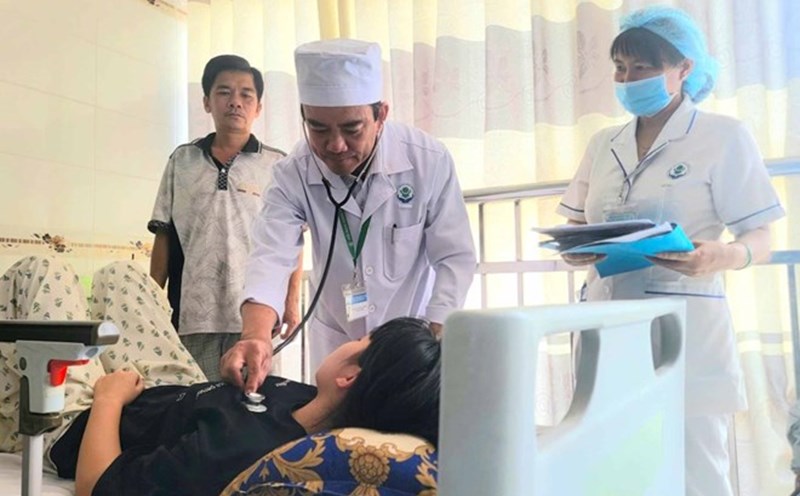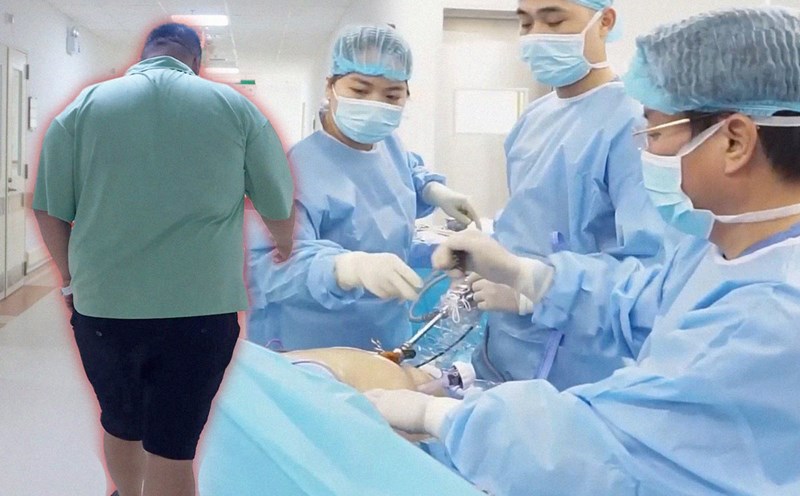The rainy season is the time when barren mosquitoes breed strongly, increasing the risk of disease transmission. In Ho Chi Minh City, the dengue fever epidemic is still complicated.
According to the latest statistics from the Ho Chi Minh City Center for Disease Control, in week 33 (11 - 17.8), the whole city recorded 2,517 cases of dengue fever, an increase of 38% compared to the average of the previous 4 weeks. The total number of dengue fever cases accumulated from the beginning of 2025 to week 33 is 25,578 cases. The wards with high numbers of cases include Thoi Hoa, Cu Chi and Tan Hiep.
Localities in Ho Chi Minh City have proactively implemented many measures to prevent epidemics. For example, in Quarter 3, Vuon Lai Ward, the medical force discovered an outbreak with 2 cases and promptly handled, sprayed chemicals, killed mosquito larvae, collected items containing stagnant water, combined with communication to raise awareness of disease prevention for people.
The number of dengue fever cases in Minh Phung, Phu Tho, Hoa Binh and Binh Thoi wards recorded an increase compared to the same period in 2024, while the number of outbreaks was also much higher than last year. It is forecasted that the number of cases will continue to increase during the peak of the rainy season due to strong reproduction of Aedes mosquitoes. The medical force in this locality has implemented many synchronous measures such as monitoring, promptly handling outbreaks and promoting diverse communication activities, to mobilize people's participation in epidemic prevention work.
In Tay Ninh, compared to the same period last year, the dengue fever situation this year is complicated, with the number of cases increasing locally and bordering Cambodia. Xuyen A Tay Ninh General Hospital has successfully received and treated many cases of severe dengue fever with shocking progress, including cases of multiple shocks, multiple organ damage, respiratory failure, and dangerous multi- pleural epidemics.
Typically, a 20-year-old man (Cambodian nationality) was hospitalized with a continuous high fever, headache, and pain all over his body. After being tested, the patient was diagnosed with Dengue virus. As soon as he was admitted to the hospital, the disease quickly progressed to a severe shock stage with many recurrent shocks and respiratory failure due to a multi-membranal epidemic, seriously threatening his life.
The second case was a 16-year-old teenager (Tay Ninh), admitted to the hospital with a high fever for 3 days, muscle pain, nausea, vomiting and diarrhea, then fell into dengue shock, at risk of multiple organ failure. The patient had a low platelet count, with a high risk of bleeding, and had to be given platelets.
According to Dr. Ho Ngoc Viet - Department of Internal Medicine, Xuyen A Tay Ninh General Hospital, dengue fever develops very quickly and is dangerous. Many patients were admitted to the hospital consciously but fell into shock just a few hours later.
In particular, children and young people are often subjective, come to the hospital late, do not drink enough water in the first days of high fever, are tired, leading to shock in the following days. Some cases of accidental out-of-the-way examination and incorrect IV fluids, leading to recovery phase of the body recovers fluid absorption, causing fluid overload, leading to acute pulmonary edema...
Dr. Viet emphasized that the dengue fever epidemic is showing signs of increasing, even some families of 3-4 people were hospitalized at the same time. Therefore, proactive prevention, early identification and timely hospitalization are the keys to protecting the health of yourself and your loved ones.










